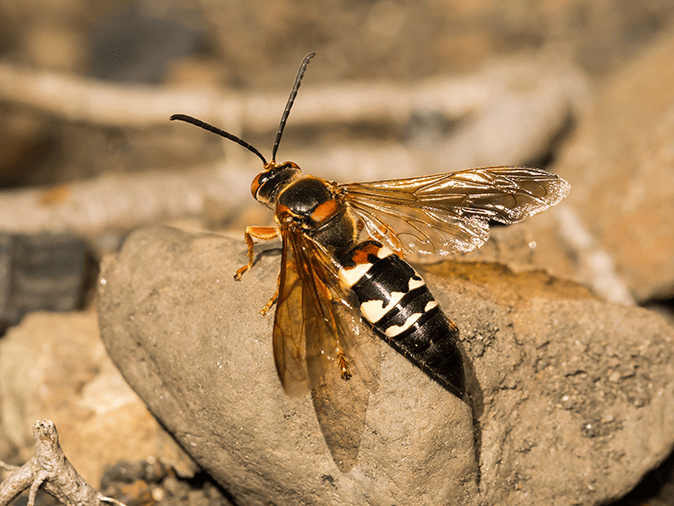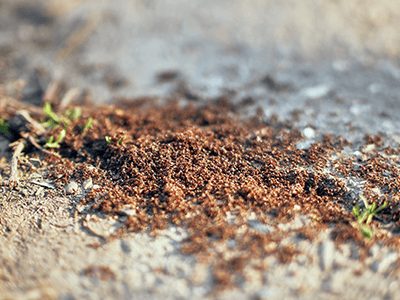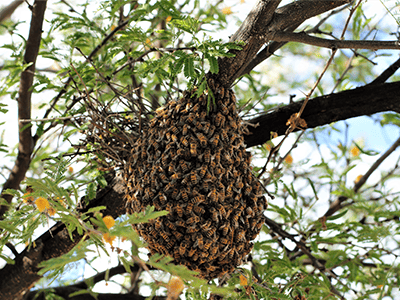
What Do Cicada Killer Wasps Look Like?
Larger than yellow jackets, both Pacific cicada killer wasps and western cicada killer wasps are reddish-brown with solid bands across their abdomens that are wider in the middle and have spots.
When are cicada killer wasps most active?
Life Cycle of the Cicada Killer Wasp
Complete metamorphosis
Adults emerge from the soil in summer. Males and females will feed, mate, and begin making small burrows about 6 inches deep in the soil surface preparing for when the female lays her eggs. The female will search for cicadas in or near trees.
They will sting the cicada causing paralysis then drag the cicada or multiple cicadas into one burrow, lay one egg, then seal burrow so development can occur.
The larva will begin feeding after hatching 2-3 days later. Approximately a week later pupation is initiated and continues through the winter until the adult emerges the following June. One generation each year.
Are Cicada Killer Wasps Dangerous?
Deadly to cicadas, cicada killer wasps do not pose a threat to human health.
Where Do Cicada Killer Wasps Next?
Cicada killer wasps typically nest in dry areas under long grass/weeds and under growing flowers.
Habits of Cicada Killer Wasps
- Diet: Adults feed on flower nectar.
- Activity: Adults active during summer months.
- Preferred Climate: Warm temperatures.
- Defense: Warning colorations and size.
- Cautions: Females burrowing in the same area forming aggregations can be a nuisance. Females will sting if provoked.
- Home Invasion: Bare ground clear of vegetation is most susceptible of being used for burrowing.
Helpful Hints for Cicada Killer Wasps
Properly fertilize and water your lawns to promote healthy turf. Targeted insecticide treatment may be necessary if larger populations occur to prevent the possibility of being stung.
Interesting Fact About Cicada Killer Wasps
Cicada wasps are one species of over 130 that are digger wasps.
How Do You Get Rid of Cicada Killer Wasps?
At Northwest Exterminating, we offer effective pest control services for cicada killer wasps and other stinging insects including Africanized honey bees. Simply give us a call to discuss your stinging insect problem!

Testimonials
Request Your FREE Estimate
Have questions or need help getting rid of cicada killer wasps or other pests? Simply complete the form below or give us a call!



